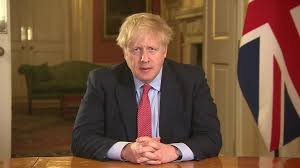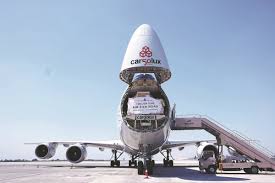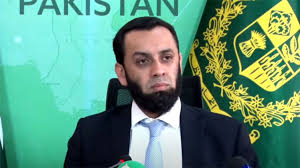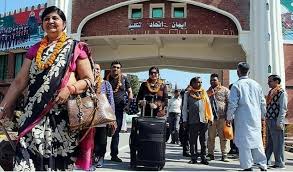Coronavirus: Boris Johnson says 20,000 ex-NHS staff have returned to help fight COVID-19

London: Boris Johnson has revealed 20,000 ex-staff have returned to the NHS to help fight coronavirus after Britons were warned restrictions on their lives may last for at least six months.
The prime minister, who is holed up in Number 11 after being diagnosed with COVID-19, said in a video message that the UK will get through the crisis “together”, as he praised the 750,000 volunteers who have offered to assist the health service.
His remarks came after England’s deputy chief medical officer, Dr Jenny Harries, said it could be six months or more before the UK gets back to normal from the pandemic.
In a two-and-a-half minute message, Mr Johnson said “we have 20,000 NHS staff coming back to the colours – doctors and nurses – it’s a most amazing thing”.
He also chose to contradict former Tory prime minister Margaret Thatcher’s infamous quote that “there is no such thing as society”.”We are going to do it, we are going to do it together,” Mr Johnson said.
“One thing I think the coronavirus crisis has already proved is that there really is such a thing as society.”
The PM thanked the 750,000 civilian volunteers who have come forward to help during the crisis, and pharmacists for “not only dispensing vital medicines but also, very often, reassurance to the customers they interact with”.
At the daily Downing Street briefing on Sunday, Dr Harries said lockdown measures could be in place for months and would be lifted gradually before regular life resumes fully.
She said the nationwide restrictions would be reviewed every three weeks.
“We need to keep that lid on and then gradually we will be able to hopefully adjust some of the social distancing measures and gradually get us all back to normal,” Dr Harries said.
Dr Harries also cautioned that patience is needed before the lockdown, which has only fully been in place for a week, has an impact on the number of new infections.
“It would be foolish of us to start something one day and assume it’s going to have an impact the next,” she said.
It was confirmed on Sunday that another 207 people in the UK have died after testing positive for coronavirus – taking the total to 1,235.
Dr Amged El-Hawrani became the first frontline hospital worker in the UK to die after contracting coronavirus.
Housing, Communities and Local Government Secretary Robert Jenrick warned additional lockdown measures could be enforced if current restrictions are deemed to be insufficient, or if Britons fail to comply with them.
He said teams are working “around the clock” to deliver equipment to frontline NHS staff – with 170 million masks, 42.8 million gloves and 2.3 million pairs of eye protectors delivered to 58,000 healthcare facilities so far.
Cabinet Office minister Michael Gove told Sky News that the length of the lockdown is not fixed but depends on the behaviour of the public.
Speaking to Sophy Ridge on Sunday, he refused to give a time limit for the restrictions – but said the period could be shortened if people follow the government’s guidelines.
“There are different projections as to how long the lockdown might last. But it’s not the case that the length of the lockdown is something that is absolutely fixed,” he added.
Mr Gove later said the public must prepare for “a significant period” of lockdown in a separate interview to the BBC.
The prime minister is currently self-isolating in his Westminster flat after testing positive for COVID-19. He is understood to be experiencing only mild symptoms and is working from home.
Health Secretary Matt Hancock and Scottish Secretary Alister Jack are also in self-isolation with COVID-19 symptoms.
NHS England’s national medical director Professor Stephen Powis has said it would be a “good result” if the coronavirus death toll in the UK was less than 20,000.





